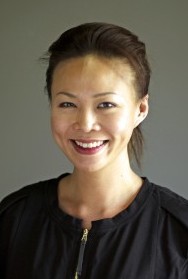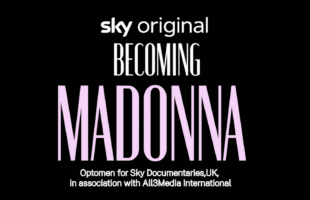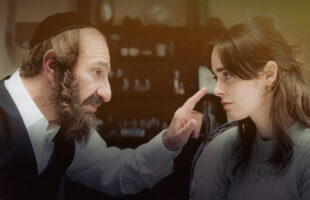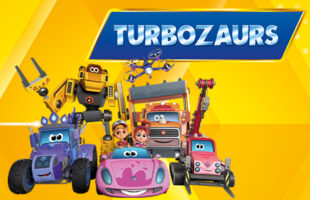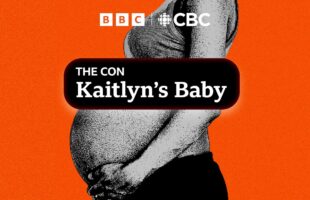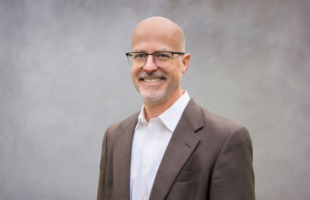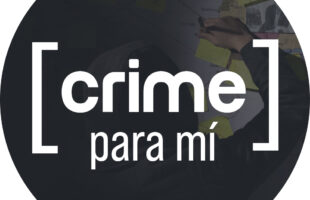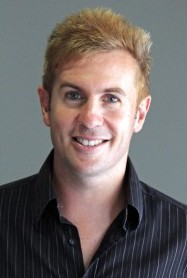
Q: Priscilla, tell us about your role as a Casting Director at activeTV.
PY: It’s pretty hefty, I must say. We’ve always had a huge advantage when it comes to reality TV. But that’s still “a whole kettle of fish”. There are certain elements of every single reality show that you need to have – those real characters. We still need to scope out how these characters are going to function as the series progresses.
For example, what kind of audiences are we going to expect to see with this? Can this one sustain to this portion? What kind of inter-dynamics can we expect to find? It’s not about “I need a cute girl… a babe here… an eye-candy there”, it needs to feel like a cross-section of a society. It’s also hard sometimes because when it’s translated on on-screen, a personality is reduced by 10%. It needs to big enough but at the same time, we need to be able to make sure that we have standards and place that allows us not to manipulate, but to control the personalities – there needs to be production standards and production control.
Q: Let’s say for example, The Amazing Race Australia. What elements are you looking at for that casting?
PY: We always want to have a bit of shock value, to a certain extent. At the same time, it needs to be (a quality) that people know and understand. It needs to be somebody that audiences can be friends with. One of my favourites are the Melbourne cops. They were absolutely lovely. They’re very cute and charming, but, at the same time, they are cops. They’re real people.
We had the “mums” on as well, from season one. They were actually “checkout” ladies at a “Big W” (department store). You need to have that air of familiarity. They could be your next-door neighbour, so you imagine you might also have the opportunity to do the race yourself too. It was not always about the goths or b*tches.
Q: Do you move from season to season telling yourself that “hey, we’ve had the b****es” already, so in this season we’re looking for something else?”
PY: It’s true, for every single season. You need to be able to vary it according to what the current trends are. It’s really difficult because people tend to compare the American with the Asian seasons. You can’t do the characters that’s already been done before. I’m not about to go out and look for somebody who has a prosthetic limb because the U.S. has done it before. Having said that, for the Asian series, we were the first to ever cast a hearing-impaired contestant (Adrian Yap from season 2). The Americans followed two seasons later.
I think that AXN – the network (for The Amazing Race Asia), needs to be engaged very fluidly in the entire process. They knew that this was a risk that they were taking but they were fully on board. We loved them and they (Adrian Yap and Collin Low) eventually won. That was pretty amazing.
Q: How do you know that the person you cast is going to sustain throughout the entire series? What are the risks involved?
PY: It’s really, really hard. As we go through the entire process, there are so many types of assessments and evaluations that we do, to a point where we could gauge at what point they’re likely to last. You need to measure against the rest of the teams that you have – which level of engagement do you have, which point of interest do you have. If they can last until this point – what kind of TV are you able to get? You really have to fill in so many gaps.
MC: In a lot of ways, that is theatre. It is reality and, particularly for The Amazing Race, we are quite hands-off. But, the challenges and the timings of things are directed to make sure that those certain characters can come against other characters, or situations that will find daunting or funny. That character is amplified because we have done so much more before that to get into their head – to know what they are and how they react with each other as much as themselves. We can also get to a point we can actually even count, “3,2,1… reaction!”
PY: As an analogy let’s say we know there’s a task that is very detail-orientated. You need to be very methodical – like trying to pick ten right clues out of 500. You know that it’s going to be next to impossible unless you really section it. I know one team that has ADD or has very disorganised thoughts, or is unable to sustain attention. Then, when you structure a task like that that’s when you know they’re going to break.
Q: Take me through the casting process. What kind of process do you subject your potentials to and how do you arrive at a certain decision to cast?
PY: This is like giving away company’s secrets! (laughs)
For any good casting process, you’ve got to have a really good gut instinct. I would say that for any one of my team, usually, I can send them into a room and within ten minutes of talking to a person or a couple, they should be able to tell you their sexual orientation, socio-economic group, political and religious views, as well as, main fears, phobias, and distinctive advantages.
For the Asian ones (The Amazing Race), generally, we cast from over 20 countries – that’s close to 4,000 (pairs of) applications – which mean that we have close to 8,000 people who applied, and we look at each and every single one of those applications.
Q: What happens when you shortlist them?
PY: Our attrition rates are generally 99%. As much as we don’t like it to happen, it really is not possible. Out of the 10% of all characters – only 1% of them actually show a little bit of that character.
For the Australian version, although it was a single country, it was a much larger market. We’ve received applications from around 8,400 pairs – which mean nearly 17,000 people applied. I was in Australia for five months, for what was a very thorough process. Each network here has a slightly different style and it depends on how thorough they want it to be. It goes to how you want to construct the back-story or even wardrobe and how to showcase their personalities. Even single one of those details is very thoroughly examined. I even care what type of shoes they wear and the colour of their nails.
Q: Once you get that 1%, what do you do with them?
PY: We do background checks. I would check their credit history. If there’s a cross border (task), I would want to make sure that there are no issues with civil or criminal litigation matters, and that those are all sorted. That’s something that we are very particular about. There are two things that we absolutely cannot stand for – first is a history of violence. Drugs are all fine. It’s really about how much you’ve cleaned up your act and level of acceptance. Abuse as well – that’s unacceptable.
Q: What happens when a cast member exhibits legal or behavioural issues or wants to leave? How do you “retire” someone from a reality show?
PY: We would never allow a cast like that to come into the show to begin with. We have so many measures. We actually have a five-point plan and that’s just a general plan out of every single five points. There are actually multiple steps. Just purely for security screening alone, I’ve got screenings on civil and criminal litigation, backgrounds, employment verification, cross-border national checks and international blacklists.
MC: Sometimes, the ones who want to be on TV actually have some sketchy pasts. They are just applying for the fun of it, for the game, and not expecting that their past would be a deterrent to the application.
PY: There’s actually some sort of declaration that if there’s anything if they think could be of relevance, let us know. I’ve done sit downs and had some chats were sometimes a past can be part of your back-story, which is fantastic. We’ve actually had one before about a father and daughter team – the daughter has been abused for a long time. It’s the story of her recovery and becoming of an adult in the dad’s eyes because he has been trying to protect her all of this time. That is a wonderful story that we will love to showcase.
Q: Is the potential for conflict something that you look for specifically?
PY: Definitely. If you’re taking The Amazing Race as an example, it’s very specific about the interpersonal dynamics because you can actually see the development of this couple’s relationship over a course of time. We need to see that change. It’s not just about the adrenaline pumping adventure. It’s also about the breakdowns at the airports and how they comfort each other. It’s all that kind of developments that makes the race what it is.
Q: After the casting is done and you go into production, does your work stop there?
PY: We do story developments throughout the entire process. It’s an on-going process of talking to them and finding out. There’s always an interview at the end of the day. All of us work very closely together. We also speak to various show producers.
Q: Could you give me an example of how observations about the cast had somewhat altered the course of production?
PY: I wouldn’t say “altered the course of production”. Let’s say, we cultivated situations. For example in the Philippines version, there was a team that was quietly backstabbing everybody else. None of the teams knew about it. The team actually kept records of who they backstabbed. It was quite silly. There was a point when they were close to another team and they were talking about it (the backstabbing) so we just asked them to repeat what they were saying on the pretext that the crew couldn’t “hear” it (in the hope the other team hears it). It has to be something natural and organic. We don’t manipulate the circumstances but we do make sure that it is “amplified”.
MC: It’s amazing. Five years ago, if you were to tell me that the Philippines wanted and even made their own version of The Amazing Race purely for the Philippines, I would’ve laughed at you. Now, that’s what we’re giving. We’ve got Israel and Ukraine – all with their own local versions as well.
PY: We consult for Vietnam, too.
MC: The problem is, in this region, so little of an emphasis is put on it (casting).
PY: I don’t think people realise that casting is so important. For drama series, people get it. But at the same time, I still feel like there are gaps there. I feel like in Southeast Asian countries, they need to be good-looking, or needs to be able to do this, and fill this gap there – done. It’s very lacking that the cast is naturally half your show. It doesn’t matter how many amazing your props are or your script is. If you don’t have the right person or character, that’s it. Nobody’s going to watch it.
MC: Asking how you can sustain a series is like asking how an actor playing this part will be there for all of the episodes. You will know from the start that Mr Smith the doctor will die in episode Eight, or get to a breaking point. We know where that breaking point is because we know them more than they know themselves. That’s what casting is.
Many around here don’t put emphasis on casting. It’s across the board that people don’t see characters in everyday people, and that’s where reality sits. The reason why The Amazing Race U.S. has won 13 Emmys – is it because they’re racing around the globe? No. It’s the characters in those places and pushing them to the limit. The race is just the means to get those characters on screen for us to enjoy.
Q: Is it fair to say that a good casting director can literally imagine the entire story arc for even a reality series?
PY: Absolutely. I like it that there are a couple of surprises, but I can say, there are really not many surprises anymore. I’ll give you personal arcs, anti-dynamic arcs. I can tell you who’s going to band together and who’s going to fight each other.
Q: In your conversations with broadcasters, what are they increasingly asking for in terms of casting? What should they be asking but are not?
PY: I think one of the hardest things is when the broadcasters are not involved. We want the broadcaster involved because there are certain risks. This is something the network needs to decide. We work very early with marketing and promos as well. They understand that this is not just selling a show, but it’s a part of the entire network’s branding – especially for tentpole shows like The Amazing Race. Some of these races are like an annual event on several networks. That’s huge.
Q: So, you make it a point to even articulate how they might want to promote their shows?
PY: We often give recommendations, especially when we’re doing road shows. We need to be able to make sure that all of our factors/ objectives are not mix-matched. For example, for the Philippines race, the network wanted first dips on the characters. 70% of my Philippines cast all have their own shows now.
MC: The same happened for Australia. Those who came off the race have had great media success. It’s not always the winner. We root for certain people – it doesn’t matter if they win or not, but why we root for them is because we want to know them more, and actually understand them. We want to connect with them and support them off-screen.
PY: That’s why it really needs to be a good cast. It needs to be a cross-sectional of the society or at least, of the network’s broadcast footprint. We really need to understand the network and their needs.
Q: Are there particular territories that are more difficult to cast than others?
PY: Surprisingly, Singapore is one of them. Singaporeans are just very restrained. They are used to being confined and “follow the book, don’t speak your mind”. It feels like we’re practicing self-censorship before that even needs to happen. Unfortunately, it’s very, very common. If you need to compare some of our Singaporean casts, the more flamboyant ones are usually from India or the Philippines. It’s really very different.
Any non-English speaking (contestant) on an English-speaking show, I would say is very difficult. Any kind of country that does not have access to international media generally would be very difficult as well.
Q: Which territory was easy to cast?
PY: Philippines – I love the Philippines.
MC: One with a liberal and a developed TV culture. Also, they’ve got celebrity cultures of their own. They’ve got telenovelas…
PY: … and talent shows all over the shop. It’s one of their favourite shows ever. Also, gossip shows. They have celebrities who became presidents or even, a basketball player who became a celebrity and then a politician.
You have to be sensitive to the needs of various markets as well. I would never cast an overtly gay man from Indonesia because he’s going to get in trouble. There are repercussions. We do need to explain to him the circumstances and ask if that’s the risks that he is prepared to take. If they are prepared to take the risks, then, would the network be prepared to take the risks as well? It’s not just a TV show at the end of the day. It’s their lives as well.
MC: How important we see casting and how beneficial it is for everyone in TV if casting is done well – it’s an integral part of TV. We’re all also ramping up our efforts, starting up our own casting within activeTV. We’ll have “activeTV casting” coming up in the next couple of months. That’s what our next step is, because it’s not being done. We make very good characters. Our line is, “activeTV knows people,” so we’re going around that one.
Q: Do you work with talent agencies?
PY: To a certain extent. Casting is not just for reality contestants. For a show we had which was Can You Serve? , we not only had to cast for a host but reality contestants as well. We needed to cast mystery shoppers and improvised actors as well. It’s all reality though. They need to be able to react according to the situations. That was tough! So, to a certain extent, we do work with agencies because it’s next to impossible otherwise, but we do look out for independents as well.
MC: Because those (independents) are the ones that have stories. People in casting agencies have been on TV or aspire to be on TV, and they don’t always make good TV. It’s a balancing act. If you get independents, it’s either they don’t know how to react, or their natural reaction comes out sooner. They’re not used to being in part.
Q: What about the talent fees?
MC: That’s quite individual. Talents for The Amazing Race are not paid at all, and yes, we do make it known to them. None of The Amazing Race’s has ever been paid parts. It’s worldwide. It’s not because we can’t afford it.
PY: It’s an opportunity of a lifetime. If you have to pay to take part in it, then, it feels like you’re corrupting the principles somehow. It applies to quite a number of genres of reality TV. There are differences between markets but, it is more market oriented than anything else. We never pay them but we do pay for their living expenses (where possible). For the Asian race for example, we never really did pay for their living expenses or anything like that. If you want to do it, it’s because you’re really committed and you WANT to do it.
For Australia, it was a little different because rents and expenses are really high there. As a matter of costs – it’s a mature industry; they always give their contestants living expenses because they’ve got to take some time off their work with child support and etc. But, different markets come with different practices.
Q: Beyond living expenses, are there other costs that you feel broadcasters should be unaware of?
PY: For The Amazing race, for example, you’re literally between four to six weeks away. I would love for them to get some living expenses because for Asia specifically, we do have a larger income disparity. We have lost stories before because we cannot afford for certain cast to be on the show.
We do definitely make recommendations (on providing some financial assistance). It is ultimately the choice that the network has to take. Traditionally, it is something that has never happened before. It’s just really hard to change non-precedence.
Q: Do you keep a database of all your applicants and reconsider them for future projects?
PY: Yes. I think that’s just smart. If you really met, let’s say on another show, this amazing person you couldn’t use for that show, I’m definitely going to give him/her a call again. Why waste any kind of talent or whatsoever?
Q: Is there any effort then to build a pool of talent that you can call your own?
PY: I think that we’re heading in that direction.
MC: That’s what we already have. Now, the efforts are to make this a new parallel business under the activeTV umbrella. We do everything. We’re also legitimising that gap. In terms of the casting, we’re launching “activeTV casting”. We’re able to offer the productions, expertise and characters that you don’t get anywhere else. You could win an Emmy for it!



